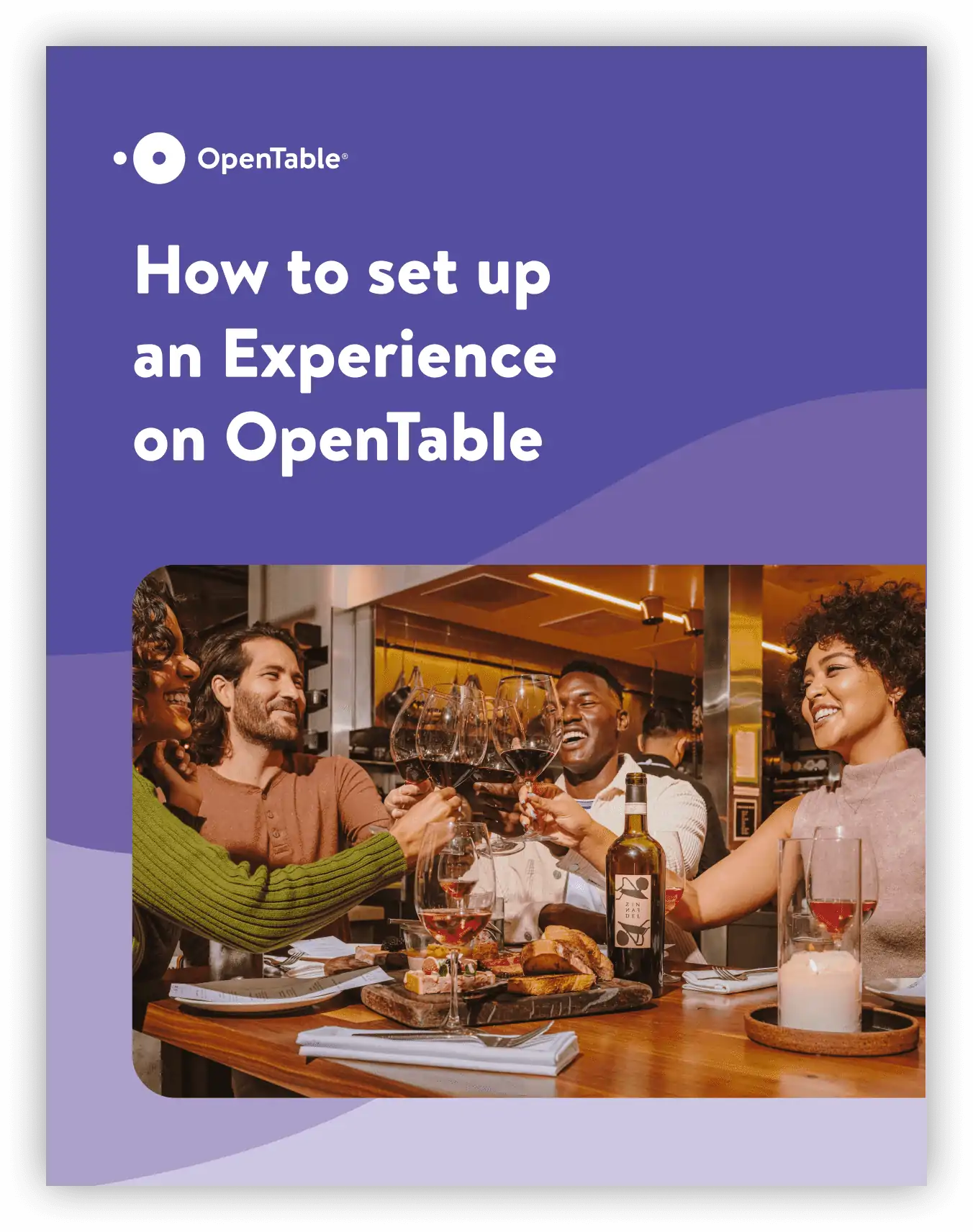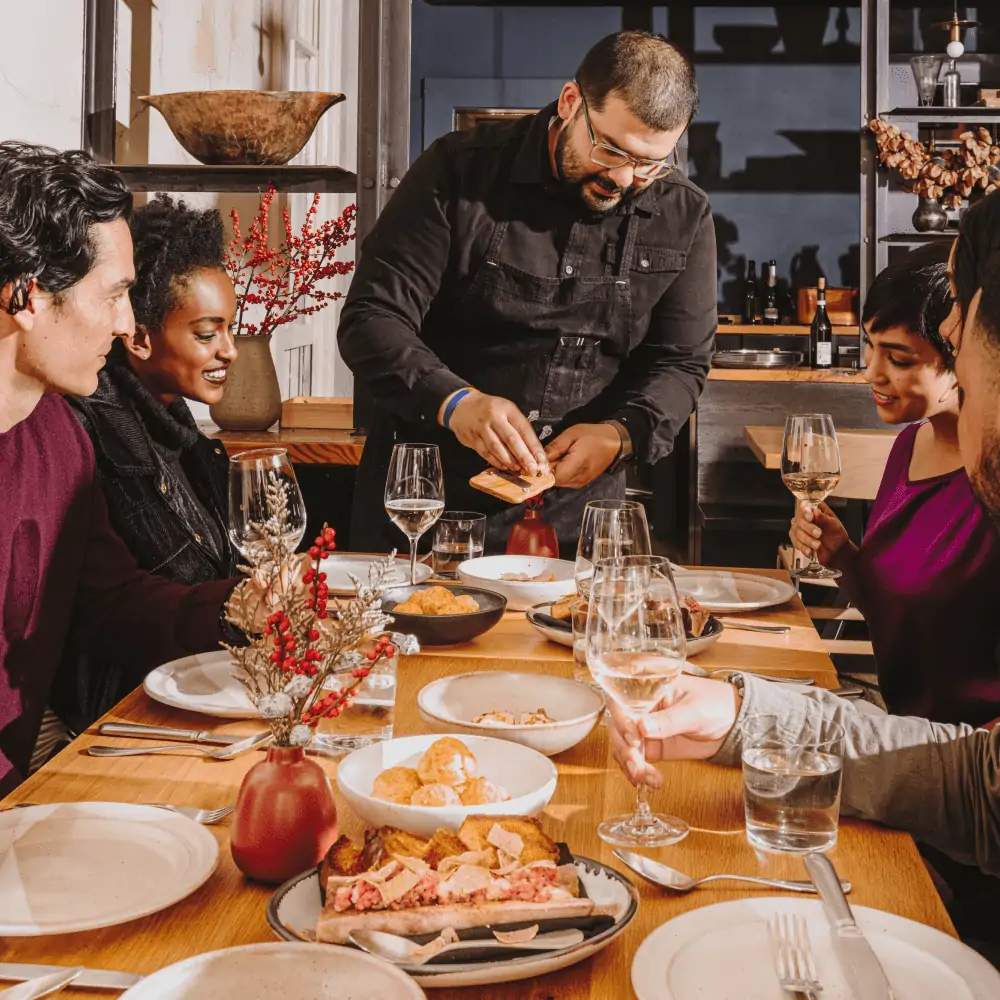When restaurateurs get together, one topic dominates the conversation: how to attract and retain top talent. And that’s exactly what happened when the Independent Restaurant Coalition and OpenTable invited four industry leaders to have a roundtable discussion.
Amanda Cohen, owner and chef of Dirt Candy in New York City; Erick Williams, owner and executive chef of Virtue Restaurant & Bar in Chicago; Ellen Yin, owner of High Street Hospitality Group in Philadelphia; and Tim Sullivon COO of Melba’s Restaurant in New York City gathered to share insights and learning on the topic of bringing up the next generation of hospitality stars.
The conversation centered on positive changes these restaurateurs have made that have helped with hiring and retention. There’s plenty of business-minded tips to borrow, but the most important strategy to inspire other restaurateurs comes straight from the heart.
Here is some of the top-line advice they shared:
Increase wages
It’s no secret that pay has been an increasingly important factor for restaurant workers who have left the industry the past few years. Recently, attracting the best employees has required restaurants to invest more of the budget than ever in finding and retaining the best talent. “It’s really helped that we’ve increased wages quite a bit,” says Cohen.
Hire for aptitude, not experience
All the restaurateurs said a person’s passion for and commitment to a career in hospitality matters more than any past experience or specific resume details.
“It was sort of a revolving door of employees just here for the money,” says Cohen of the time at Dirt Candy before she got laser-focused on hiring people who wanted to grow in the industry. She says the best candidates have an attitude that says, “I can’t wait to spend the rest of my career doing [hospitality].”
The panelists agree that it’s worth considering candidates who have struggled one way or another in the past. Williams of Virtue Bar & Restaurant says he is a big believer in second chances. “I hardly ever hire anyone who doesn’t have problems.”
He says he often thinks about how many chances it takes for him to get something right, and the self-reflection helps him expand his mind about who has the potential to be on his team. “If you’re committed, loyal, and you keep showing up, we can usually work together,” he says.
Listen to candidates
Melba’s Restaurant in New York City’s Harlem neighborhood is known for owner Melba Wilson and the enthusiasm of the team who works there. Sullivon says that’s not an accident–it was Melba’s compelling storytelling about the restaurant and her passion for her work and community that made him want to work there himself.
Now, when he interviews candidates, he does more listening than talking. He’s got his ears peeled for a passion that echoes Melba’s own. “When you really listen to someone you can hear their level of engagement,” he says.
Diversify the team
Few topics have been in the spotlight more than the need for diverse teams in restaurants and businesses of all kinds. It’s a topic that is top of mind for these restaurateurs.
“During the past decade, everyone has acknowledged that it’s been hard to find qualified talent, period. Finding a diverse team takes looking outside the places we have normally been looking,” says Yin of High Street Hospitality. To that end, she’s connected with local colleges and universities to help students see hospitality as a viable career if they have a passion for it.
“When it comes to women, many haven’t thought about entrepreneurship in hospitality as an opportunity,” she says. “You have to let people know these opportunities exist.”
Think beyond payment
Today, job seekers are often just as drawn by a restaurant’s culture, benefits, and approach to work-life balance as they are by wages.
Melba’s has set a 50-hour maximum workweek to help protect work-life balance for the team. Sullivon thinks that actively preventing burnout means the team comes to work refreshed, ready, and able to give their best to the job. “Growing up in the industry, it was a badge of honor how many hours you can put in. But that’s changing,” he says.
Yin approves almost all requests for time off as a matter of policy. “In order to do that, we have to have enough people on the team,” she says. She’s also increased access to affordable mental health care through her employee benefits program. The move has proven popular with employees.
At Dirt Candy, Cohen has intentionally made her kitchen a less stressful place than many other professional kitchens. “We’ve changed the way we run the kitchen so people don’t come in and feel terrified,” she says. She accomplishes this in part by adding extra team members to take the pressure off cooks. She also offers positive reinforcement and praise, even when the kitchen has had a tough night.
Prioritize kindness
Williams can sum up Virtue’s culture in one word: Kindness. “How can we be kind to each other? How can the language reflect that?” he asks. One answer he’s come up with is to eliminate the typical kitchen hierarchy.
“I don’t call myself the boss. I don’t talk about employees, I talk about team members,” he says. This creates an open atmosphere where collaboration and creativity can thrive.
“If we doubled the pay, it wouldn’t be enough for team members to feel fully connected to our space,” says Williams. “It’s the care and kindness that makes that connection. Care is the only recipe we have that works consistently.”




